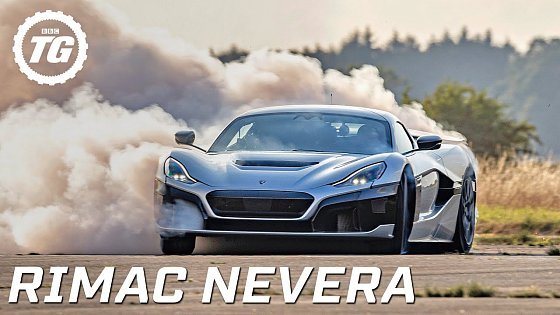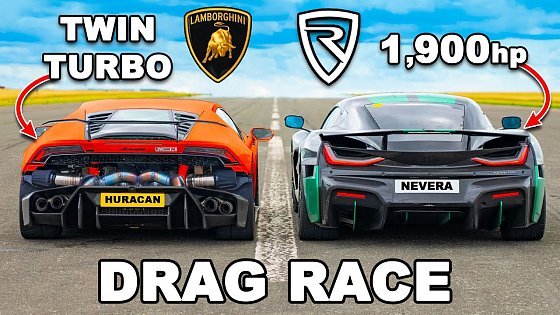Video Summary
Here is the summary of the YouTube video review of the Rimac Nevera:- The Rimac Nevera starts at 2,000,000 euros plus taxes.
- The design of the rear of the car has active aero, with a lower venturi tunnel that raises and lowers.
- The rear wing changes its angle depending on the driving mode and serves as an air brake.
- The bodywork is carbon fiber.
- The design on the side harkens back to 17th century Croatian soldiers who wore bow ties.
- The side vents are for cooling the rear motors.
- The headlights are LED and bespoke.
- Active aero at the front allows the front splitter to lower or raise depending on what's happening.
- All aspects of the vehicle are designed specifically for this vehicle, with a few minor exceptions.
- It features adaptive dampers with three modes: soft, medium, and hard.
- Modes can be customized and torque can be altered at the rear axle, from 100% all the way down to zero.
- There is motor control over each wheel, for torque vectoring.
- The battery back is 120-kilowatt hours.
- It charges from zero to 80% full in 18 minutes.
- The carbon fiber monocock chassis is rigid.
- The design is restrained, but looks expensive.
- Rimac engineered a Drift mode into the car to make it fun to drive.
- It has a structural rigidity of 70,000 Newton meters.
- The four motors have a combined 1,914 horsepower and 2,360 Newton meters of torque.
- You are required to use Rimac bespoke luggage to truly make the most of all the space in the small 100-liter boot.
- The regenerative braking can achieve up to 0.6 G, to assist the carbon ceramic brakes.
- The car is homologated to be used all over the world.
- All of the cameras on the car can double as action cameras for recording yourself during a lap.
- Most parts on this vehicle are built specifically for it.
- The throttle pedal is well-designed for controlled acceleration.
- Cabin noises are prominent. The sounds are not drown out by an engine.
- The brake response is somewhat over-assisted in the initial press and under-assisted further down. It would be better if the brake was softer up top and then harder further down.






